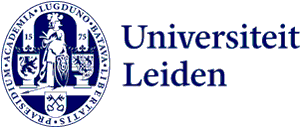Programme
When deciding what to study you undoubtedly read a lot of information about your study programme. Leiden University employs various systems to provide information about programmes and courses and to facilitate communication between lecturers and students.
The Prospectus contains information about all the courses within your study programme. Here you can find all you need to know about your programme. Via the online learning environment Brightspace you can communicate with your lecturers and submit assignments.

The specialisation distances itself from a specifically nationalistic approach, which has long dominated national history writing, and attempts to explain how and why specific cultures develop in different countries through a comparative approach. An important additional methodological tool lies in the exploration of the connections between the developments in different countries, with a special focus on ‘cultural transfer’, the adoption of examples from other countries and the inspiration they engender.
The specialisation explores this innovative comparative perspective by first acquainting students with the concepts of political culture and national identity through an in-depth analysis of a number of internationally renowned studies on this subject. Students can then apply these concepts and methods within the framework of a broad theme and eventually develop their own study through an individually chosen subject. Central in this is the use of primary sources, not just through those widely available in Leiden and other Dutch archives, but also by studying material in other countries and on the web. The Master specialisation Political Culture and National Identities thus provides students with a set of analytical tools which enable them a greater understanding of the workings of politics and cultural developments in a historical context.
See the Prospectus for more information about the study programme.
Components MA History
- Literature Seminar [10 ECTS]
The introductory course of the master is taught in the form of an intensive literature seminar, in which you will be given an outline of issues relevant to your specialisation. You will use secondary literature sources. Students start their programme with a Literature Seminar, whether they start in September or February. - Research Seminar [2x10 ECTS]
You will take two research seminars where you will carry out research on the basis of original source materials or published documents. Objective of this seminar is enhanced performance in the following areas: research skills, presentation skills, composition skills, and ability to evaluate the findings of other researchers. Students follow one Research Seminar during the first semester of their programme. Students starting in September follow their Research Seminar in the Fall Semester, students starting in February in the Spring Semester. - Optional Courses [10 ECTS]
Students follow one or two optional courses.
All MA courses offered at level 400 or higher can be followed as ‘Optional Course’. These may comprise MA-courses offered by Leiden University (including any Literature and Research seminars offered by the Department of History, subject to availability of space) and those offered by other universities.
You can either follow one course of 10 ECTS or two of 5 ECTS. It is advisable to take these courses in the first semester of the programme, but it is possible to take them in the second semester, provided you start already with the thesis in the first semester. - Thesis [20 ECTS]
The Master’s Programme will be concluded by a 20 ECTS MA-thesis. This thesis will be based on original research and will be at minimum 16.000 and at maximum 18.000 words in size. Students are guided in writing their thesis by thesis supervisors. Students are also expected to follow a thesis seminar. This seminar consists of a number of meetings in which students are given the opportunity to present their work and to comment on the work of others. The seminar aims at providing students with some additional support in the writing process as well as achieving further uniformity where practical matters are concerned. Upon graduation students sit for a final ceremony for which they defend their thesis and answer questions on additional literature.
A student has to ask a member of staff active in the field of his/her specialisation to act as their thesis supervisor. In the overview of staff, divided by specialisation, possible supervisors can be identified.
Programme schedule
Start in September
| Semester | Week/date | |
| I | 1 | Start courses (Literature Seminar, Research Seminar, Optional Course) |
| 7/8 | Complete Literature Seminar | |
| 10 | Subject and thesis supervisor must have been determined. Delivery of this information to the Director of Studies for the MA History. | |
| 10-13 | MA Thesis: - Composition of research plan in concordance with thesis supervisor - Bibliographical state of research |
|
| December | Delivery of paper for Research Seminar | |
| January | Delivery of paper for Optional course (especially if it concerns a second research seminar in history) | |
| II | 3 | Delivery of Bibliografical Essay |
| End of June | Submission MA Thesis |
Always check the schedule for the exact deadlines.
Start in February
| Semester | Week/date | |
| II | 1 | Start courses (Literature Seminar, Research Seminar, Optional Course) |
| 7/8 | Complete Literature Seminar | |
| 10 | Subject and thesis supervisor must have been determined. Delivery of this information to the Director of Studies for the MA History. | |
| 10-13 | MA Thesis: - Composition of research plan in concordance with thesis supervisor - Bibliographical state of research |
|
| End of May | Delivery of paper for Research Seminar | |
| in June | Delivery paper for Optional course (especially if it concerns a second research seminar in history) | |
| I | September | Delivery Bibliografical Essay |
| December | Delivery MA Thesis |
Always check the schedule for the exact deadlines.
